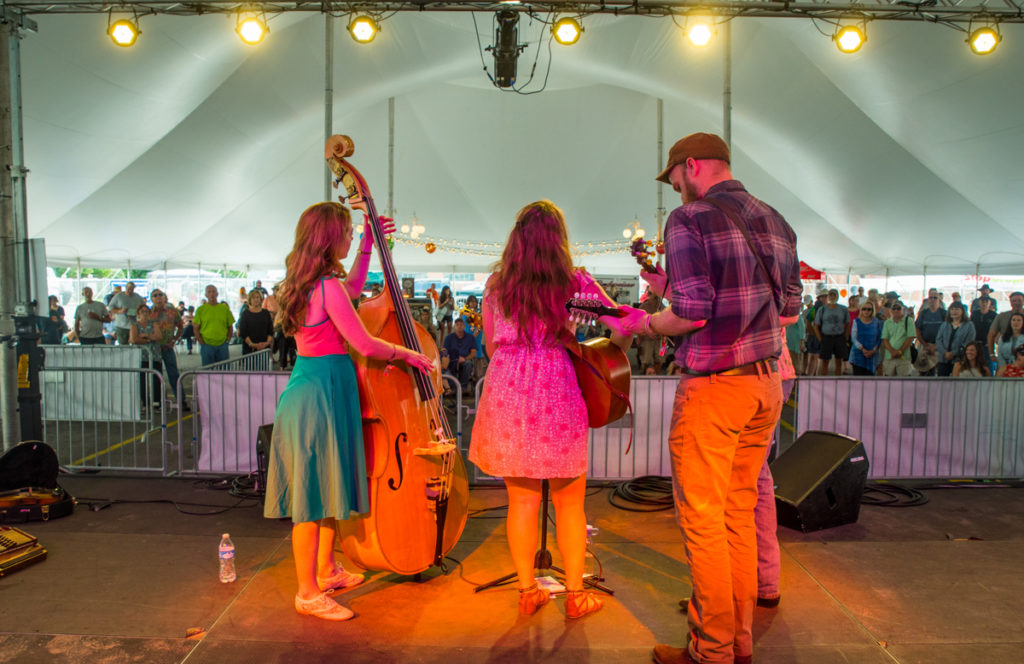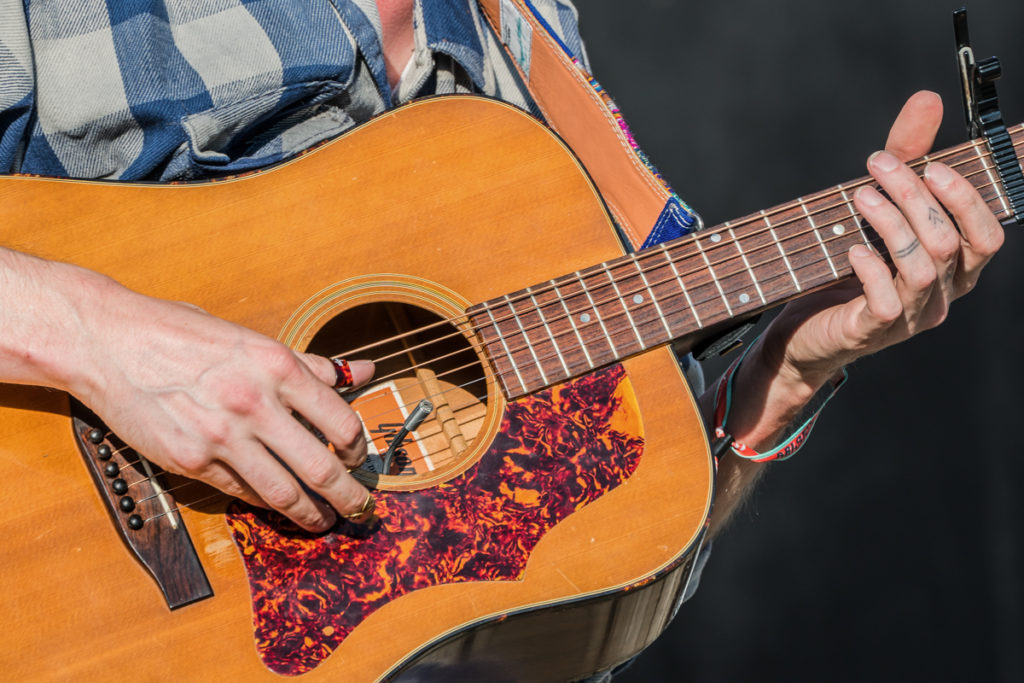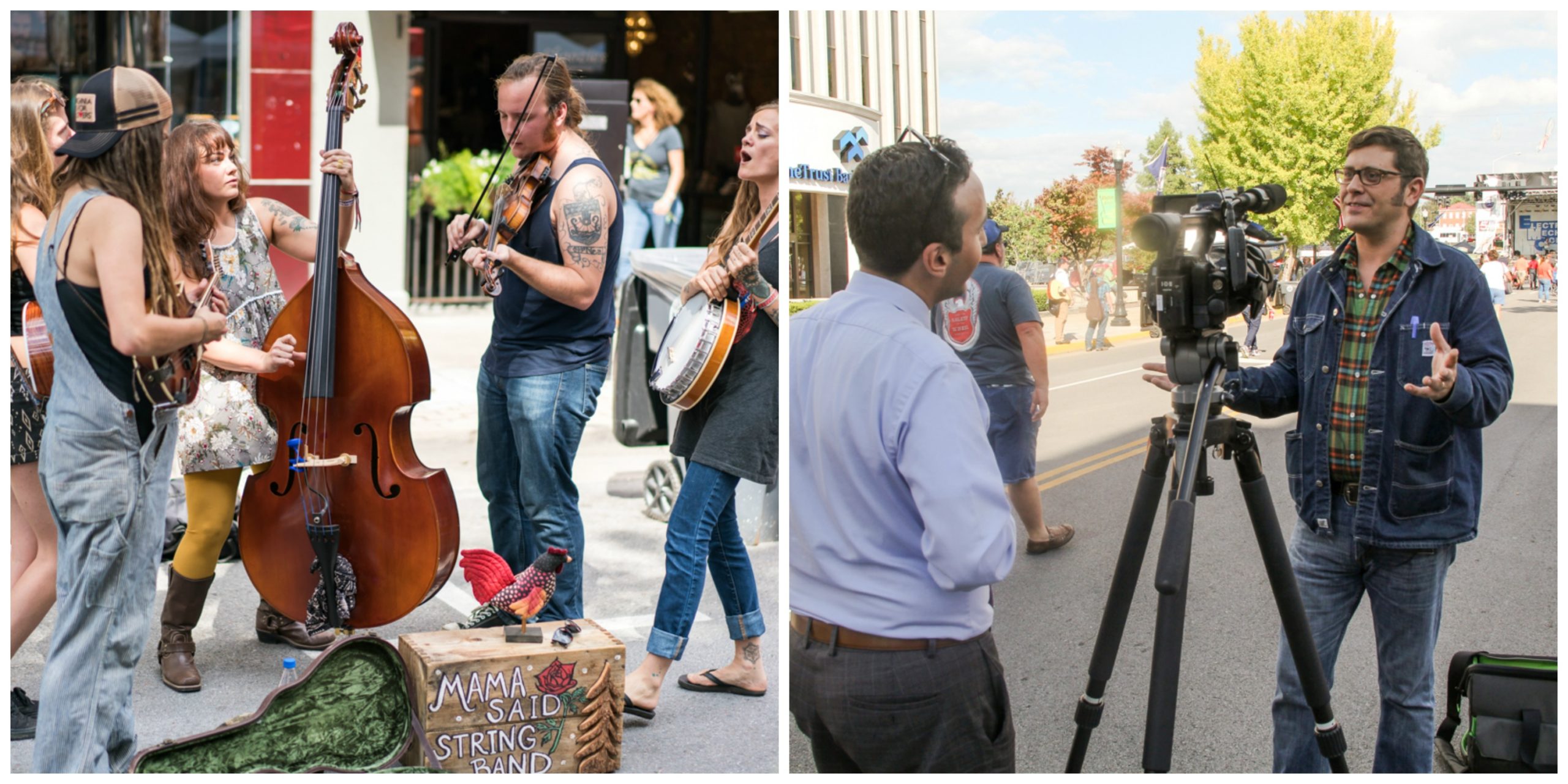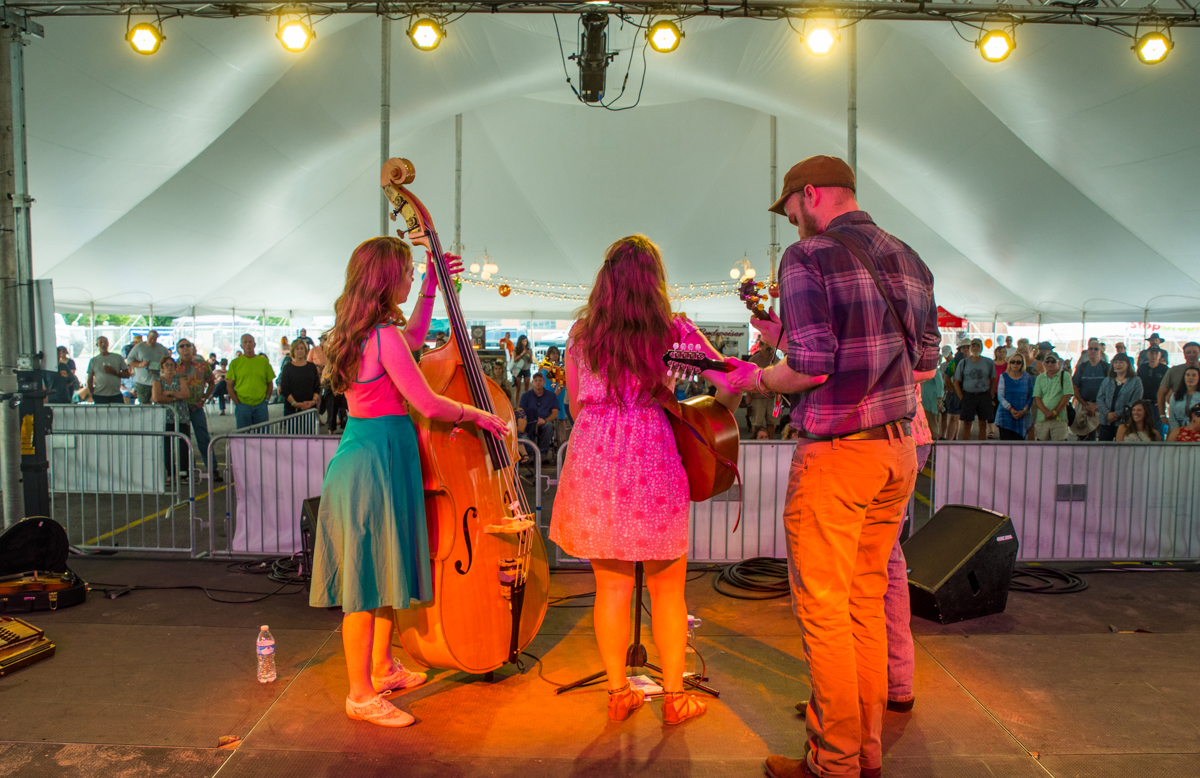“Hey, man, what do I have to do to play your festival?”
It’s a question I’ve been asked a million times – and, in turn, one I’ve asked other event organizers as a band member, and as an artist manager and booking agent. I’ve also been on the other side of the coin, having served on the music committee for Bristol Rhythm & Roots Reunion. Before you ask, I don’t book talent for the festival anymore, but I’ve written hundreds of pitches, sent thousands of emails, cold-called venues begging for gigs, schmoozed, and fielded millions of requests from bands that want to play BCM events. I’ll be honest, there is no “one and done” answer to the above question. However, as someone who has seen it from all sides, I can confidently provide some useful insights that may help you get your foot in the door of some venues and events if you are a new act or a young touring band.

The first thing you have to understand is that music is a business. Venues and festivals that specialize in live music cannot operate if they don’t turn a profit. Stages, lights, stage equipment, and sound techs aren’t delivered from the sky by musically-minded Festival Fairies. Those things cost money and are a necessary expense. If you are a band that just kicks around the garage, plays the same tiny bar every other month, and hasn’t gained a substantial following, buyers won’t take you seriously – especially if your online presence is a hot mess. You have to put in the work in order to reap the rewards.
Talent buyers are all looking for different things. More often than not – and I hate to be the bearer of bad news here – some are not open to solicitations from bands. Many simply don’t have time to review the avalanche of press kits, CDs, and MP3s that come in daily. Generally, buyers at big festivals already know what acts they want to target in order to achieve the perfect lineup. Bars and venues are more flexible and will likely leverage door deals for new acts, meaning they will take a portion of ticket sales at the door of your show.
THIS ONE GOES TO 11
So how do you get the attention of talent buyers and start getting booked? Here’s my personal list of 11 “Band Aids” that successful touring bands have done or are doing that may help:
1. Get real
Be honest with yourself. Get real about your band, your brand, and what you truly have to offer. For every act that’s never performed outside their hometown, there are 50 bands out there touring – shedding blood, sweat, and tears on the road – to earn good gigs. They live in and out of sketchy Dodge Caravans and shower at truck stops to achieve their dreams. Are you hungry enough to live this way? Don’t expect to go from playing in the garage to a main stage anywhere USA if you haven’t done the work. Evaluate your expectations and what you want to achieve, then ask yourself if your act is polished enough to perform in front of an audience.

2. Be an O.G.: Do YOU
What does your act have that no one else has? What makes you stand out? Fine-tune what makes you awesome and strive to be the best at that. Even cover bands can get great gigs if they have a niche. The Cleverlys and Love Canon are fine examples.
Also, make sure there isn’t another act out there performing under your name. I can’t stress this enough. At the very least, it’s confusing. Worst case scenario, you get a cease and desist letter from an attorney. Your name is the first step to building a brand. Google it and make sure the name is available across all web and social media platforms before printing t-shirts. Also, choose your band name wisely.
3. Bio Hazards
Even if your band tours outside your hometown, don’t assume you are known in every market. That’s why a good, 200-word-or-less band biography is so important. Fill it with information about what genre of music you most identify with and include a list of career accomplishments: headliners you’ve opened for, other festivals you’ve played, producers you’ve worked with, and awards you’ve achieved are a good place to start. Include quotes from press reviews if you have them. If you are pushing a new album, make this write-up separate from the band biography. Grammatical and spelling errors matter, too, folks. As a marketer, it’s my job to “sell” you to festivalgoers. I can’t do that if you can’t sell yourself with a decently written band bio.
4. Break the Internet
Have a professional-looking website. Period. Your website is an extension of your brand and it’s the first place talent buyers will go to listen to your music and find information on how to book your band. There is a growing number of website-building services out there just for musicians that are easy to DIY and inexpensive to maintain. I recommend checking out Bandzoogle, BandVista, or Wix. Some offer things like email marketing, online storefronts to help you move merch, and video and music players. The ideal band website will have your contact info, video and audio samples of your music, tour dates, and a downloadable EPK (electronic press kit) that contains a good band bio, hi-res photo, and links or quotes from press articles written about your act. You should also include links to all your social media sites. Further, social media sites should not serve as a substitution for your website.
5. Pictures are worth a thousand gigs
Spend the money to hire a good photographer and get good publicity shots made. Don’t have the cash? Find a friend who takes professional-looking photos who will work with you on price or offer a freebie for photo credit. Any venue or festival will ask for hi-resolution photos to promote your band. This is not a step you can skip. Just do it.

6. Be a social butterfly, not a wallflower
Engagement with fans on social media has never been more important for independent artists. It’s a great way to push merch, ticket sales, and turn “likes” into super-fans. If you are serious about booking shows, building a fan base, and creating a brand, social media is essential. Talent buyers (and agents who may want to represent you) will look at how many followers you have to help them state a case for your act playing at their venue or festival, especially if you are flying under the radar. Also, keep it professional. Profanity, dissing venues or other bands, and breaking bad online can turn fans off and keep you from getting gigs. Also, keep the graphics and branding on your social media sites consistent with those on your website.
7. Video made the radio star
Good music videos are essential to your career as a musician, period. Get a YouTube channel and only upload your very best quality video content there. Save the amateur iPhone videos for Facebook or Instagram Stories and Snapchat. Buyers want a good representation of what you sound like live. You don’t have to spend a lot of money to achieve that. Set up a one-camera shoot (mounted on a tripod) in a quiet and acoustically friendly location with good atmosphere and lighting. Take out the close-ups edited into this video of HoneyHoney performing “Father’s Daughter” in an old house and you get the idea. .
Another example is this simple video of Molly Tuttle playing her arrangement of “Wildwood Flower.” Note the natural lighting from the curtained window and the simple props:
8. Sing for your supper
Talent buyers are busy, busy, people. Their inboxes are full of unopened pitches from bands who want to play their venues. Most often, buyers at larger festivals and venues rely on booking agents they trust and have built relationships with to hire talent or book bands that have a proven track record of ticket sales. If you have no history in the buyers’ market, no press, and no representation, you won’t have much luck. This is frustrating for a lot of musicians, but the only way to get their attention is by taking advantage of as many opportunities to perform as possible. Play your uncle’s backyard barbecue. Break out your guitar at your best friend’s dinner party. My best advice for those just starting out: Do as many open mics in as many venues as you can. Show up early, be friendly with venue owners and staff, and network with the other musicians who are there. If your music is any good, this will help you land a paying gig and build a good reputation among the music community. It takes time, but persistence pays off.
9. Network
Embed yourself in your local music scene. Support other musicians by paying the cover charge and going to their shows. Pass out demos to people who frequent live music venues wherever you go. Hang out and talk to bands after shows. Get to know staff at the venues and be friendly. Networking can help you get your foot in the door for playing gigs at a particular venue, perhaps gain an opening slot for another act, or even help you find other musicians to collaborate with. Above all, be professional, be nice, and don’t give up. Musicians and the music-minded are a kind and welcoming bunch. Like in any other profession, building good relationships is key.
10. Promote, promote, promote
Collect email addresses of fans whenever the opportunity presents itself and add them to your email database. Collect email addresses of music-related press in any market you are playing and send them press releases about your upcoming shows. Send a copy of that release to the venue you are playing as well, along with a poster file they can print off to help you promote. A few weeks out from the gig, see if there are any local shows on radio or TV that would have you on as a guest to perform. Don’t leave it up to the venue to promote your show as they have tons of other concerts on their calendars and may have other marketing priorities. Keep your tour schedule updated on your website and send invites to shows on social media. Being your own press agent is essential. Also, celebrate every single band achievement on your website’s news feed and on social media.

11. Don’t blow it
Yay! You got the gig! Now it’s up to you to blow their minds and pack the house! Above all, be professional. If a member of your band gets drunk and plays a sloppy set or you have a heated argument with the sound guy, it’s doubtful you’ll ever play there again. However, if the venue owner or talent buyer finds you likeable, professional, and digs your music, nine times out of ten you will be invited back. At the end of the day, it’s about what you put out there and building relationships as much as it is about your art. Success, at any level, is a journey worth taking if you are passionate about what you are doing, set goals, and stay on task.
Good luck!


